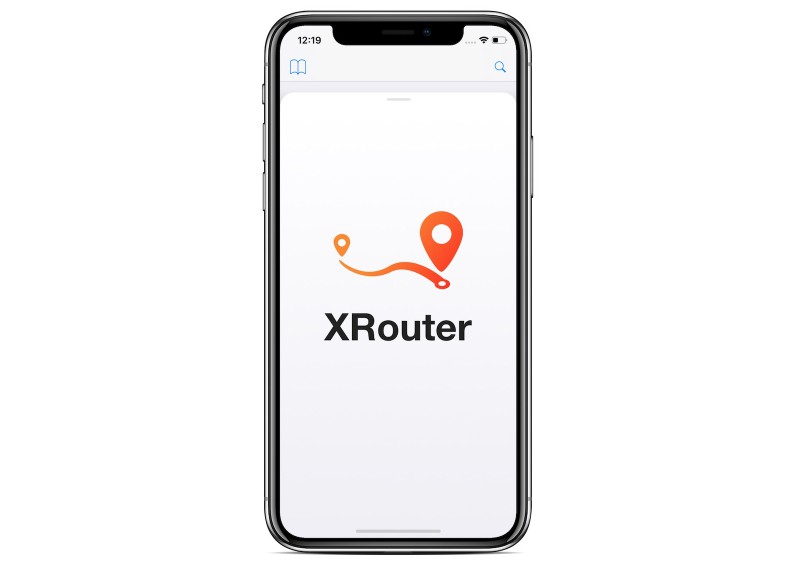XRouter
A simple routing library for iOS projects.
Usage
Basic Usage
Creating a Router
// Create a router
let router = Router<MyRoutes>()
// Navigate to a route
router.navigate(to: .loginFlow)
// ... or open a route from a URL
router.openURL(url)
Configuring Routes
Define your routes, like so:
enum AppRoute {
case home
case profile(withID: Int)
}
- Note: By default, enum properties dont factor into equality checks/comparisons. You can provide your own
implemention ofvar name: Stringorstatic func == (_:_:)if you would like to override this.
Implement the protocol stubs:
extension AppRoute: RouteProvider {
/// Configure the transitions
var transition: RouteTransition {
switch self {
case .home:
return .push
case .profile:
return .modal
}
}
/// Prepare the view controller for the route
/// - You can use this to configure entry points into flow coordinators
/// - You can throw errors here to cancel the navigation
func prepareForTransition(from currentViewController: UIViewController) throws {
switch self {
case .home:
return HomeCoordinator.shared.navigateHome().navigationController
case .profile(let profileID):
let myProfile = try Profile.load(withID: profileID)
return ProfileViewController(profile: myProfile)
}
}
}
Advanced Usage
URL Support
You only need to do two things to add URL support to your routes.
First, implement the static method registerURLs in your RouteProvider.
Here is an example with a single host:
extension MyRoute: RouteProvider {
static func registerURLs() -> Router<MyRoute>.URLMatcherGroup? {
return .group("store.example.com") {
$0.map("products") { .allProducts }
$0.map("products/{category}/view") { try .products(catagory: $0.param("category")) }
$0.map("user/{id}/profile") { try .viewProfile(withID: $0.param("id")) }
$0.map("user/*/logout") { .logout }
}
}
}
Here is an example with multiple domains:
extension MyRoute: RouteProvider {
static func registerURLs() -> Router<MyRoute>.URLMatcherGroup? {
return .init(matchers: [
.group(["example.com", "store.example.com"]) {
$0.map("products/") { .allProducts }
$0.map("products/{category}/view") { try .products(catagory: $0.param("category")) }
$0.map("user/{id}/profile") { try .viewProfile(withID: $0.param("id")) }
$0.map("user/*/logout") { .logout }
},
.group("affiliate.website.net.au") {
$0.map("*/referral/") { .openReferralProgram(for: $0.rawURL) }
}
])
}
}
Then call the openURL method inside your URL handler. Here is Universal Links for example:
extension AppDelegate {
/// Open Universal Links
func application(_ application: UIApplication,
continue userActivity: NSUserActivity,
restorationHandler: @escaping ([Any]?) -> Void) -> Bool
{
guard userActivity.activityType == NSUserActivityTypeBrowsingWeb,
let url = userActivity.webpageURL,
let handledURL = router.openURL(url) else {
return false // Unrecognized URL
}
return handledURL
}
}
Handling errors
It can be messy trying to handle errors in every place you call navigate.
You can set a completion handler for a navigation action:
router.navigate(to: .profilePage(id: "12")) { optionalError in
if let error = optionalError {
print("Oh no, there was an unexpected error!")
} else {
print("Success!")
}
}
You could wrap or override the navigate functions to provide a default completion handler, if you handle
all navigation errors in the same way. For example, something like this:
class MyRouter<Route: RouteProvider>: XRouter.Router<Route> {
/// Navigate to a route. Logs errors.
override func navigate(to route: Route, animated: Bool = true, completion: ((Error?) -> Void)? = nil) {
super.navigate(to: route, animated: animated, completion: completion ?? logErrors)
}
/// Open a URL to a route. Logs errors.
@discardableResult
override func openURL(_ url: URL, animated: Bool = true, completion: ((Error?) -> Void)? = nil) -> Bool {
return openURL(url, animated: animated, completion: completion ?? logErrors)
}
/// Completion handler for `navigate(...)`/`openURL(...)`.
private func logErrors(_ error: Error?) {
guard let error = error else { return }
// Log errors here
}
}
Custom Transitions
Here is an example using the popular Hero Transitions library.
Set the customTransitionDelegate for the Router:
router.customTransitionDelegate = self
(Optional) Define your custom transitions in an extension so you can refer to them statically
extension RouteTransition {
static var myHeroFade: RouteTransition {
return .custom(identifier: "heroFade")
}
}
Implement the delegate method performTransition(...):
extension AppDelegate: RouterCustomTransitionDelegate {
/// Perform a custom transition
func performTransition(to newViewController: UIViewController,
from oldViewController: UIViewController,
transition: RouteTransition,
animated: Bool) {
if transition == .myHeroFade {
oldViewController.hero.isEnabled = true
newViewController.hero.isEnabled = true
newViewController.hero.modalAnimationType = .fade
// Creates a container nav stack
let containerNavController = UINavigationController()
containerNavController.hero.isEnabled = true
containerNavController.setViewControllers([newViewController], animated: false)
// Present the hero animation
oldViewController.present(containerNavController, animated: animated)
}
}
}
And set the transition to .custom in your Routes.swift file:
var transition: RouteTransition {
switch self {
case .myRoute:
return .myHeroFade
}
}
Example
To run the example project, clone the repo, and run it in Xcode 10.
Requirements
Installation
CocoaPods
XRouter is available through CocoaPods. To install
it, simply add the following line to your Podfile:
pod 'XRouter'
Author
Reece Como, [email protected]

